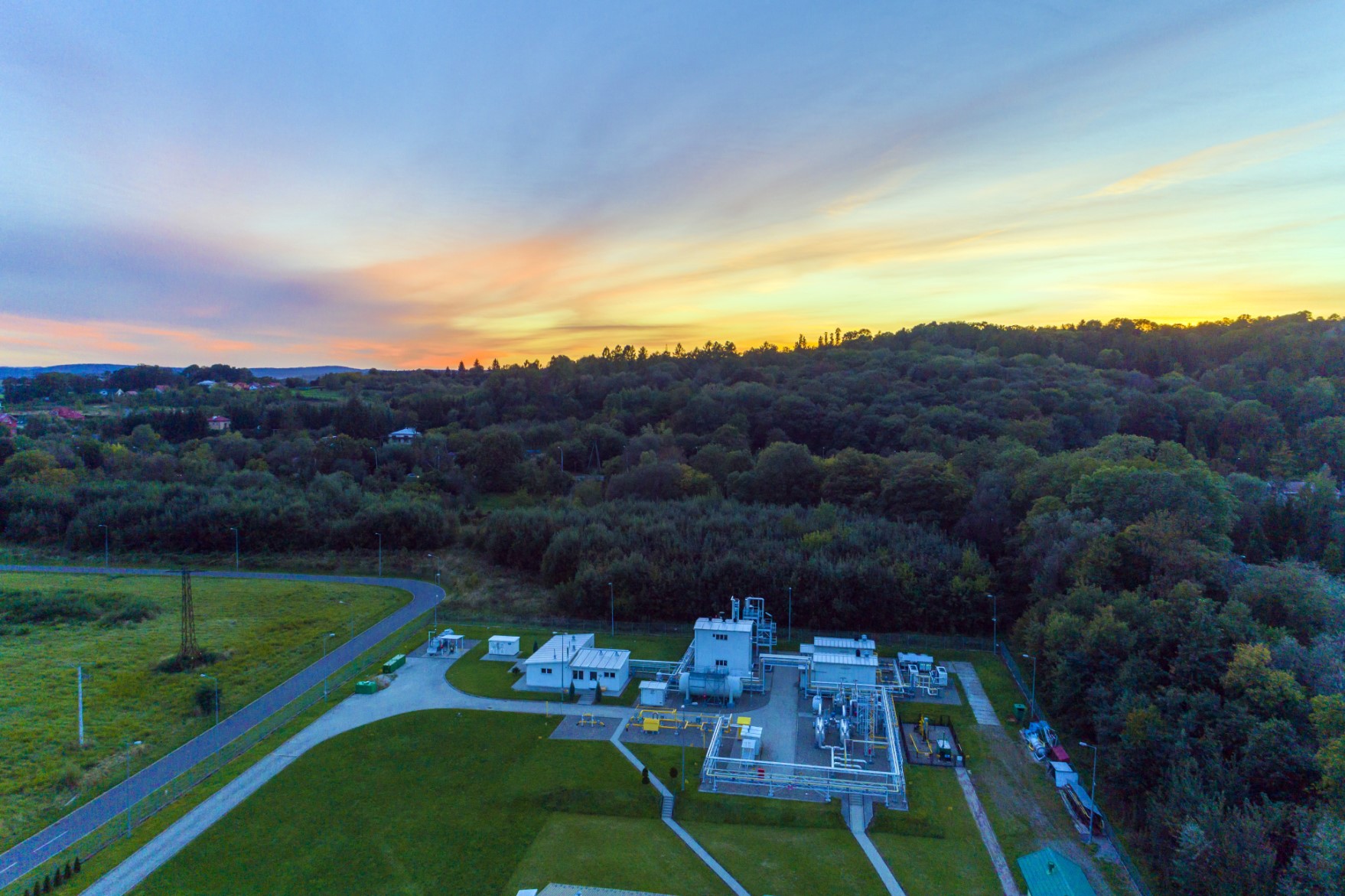(including a sharp rise in oil prices, higher gas prices and expansion of the LNG market)
The second half of 2021 saw unprecedented rises in natural gas prices across the markets. At its peak, the spot price was 18.3x higher than the average price of 2020 and 12.6x higher than the average price of 2019. On December 21st 2021, the price of gas at TTF reached a record high of EUR 180/MWh. Other factors behind the price increases included a decline in gas production from European fields (in the UK, Netherlands and Norway) and strong demand for LNG (especially on the Chinese and Brazilian markets).
In 2021, natural gas prices in Europe rose on average by 385% year on year (based on prices recorded at TTF, THE/GPL, NBP and POLPX), from EUR 9.5/MWh in 2020 to EUR 46.12/MWh. At the end of the winter season and beginning of the second quarter of 2021, temperatures were below the seasonal average, which drove up gas demand, depleting gas stocks held in storage. At the same time, high demand for LNG on Asian markets caused some supplies to be redirected from Europe to Asia. In the second half of 2021, the level of gas stocks in Europe was still low, which – coupled with a lower gas output (reduced production from the Groningen field) and lower supply of Russian gas to Europe, led to a further increase in gas prices. A dramatic increase in its prices on the European market toward the year’s end and a decline in demand from Asia led to more LNG shipments entering Europe, as a result of which the supply of regasified LNG began to recover. However, this was accompanied by a shut-off of Russian gas supplies to Germany via the Yamal pipeline, as well as limited gas flows via Ukraine.
The global consumption of natural gas in 2021 rose relative to 2020, fuelled by the economic recovery after the pandemic-induced stagnation and by the harsh winter. The supply fell short of demand, which sent the market prices of natural gas soaring.
As in the previous year, LNG infrastructure was expanded globally to increase both export and import capacities. In 2021, the PGNiG Group increased its LNG imports compared with 2020. By participating in the global LNG market, PGNiG is able to optimise its long-term gas portfolio and to cover its requirements in the event of increased demand or reduction of pipeline supplies, such as the one which took place in 2021 when Gazprom, the main supplier of gas from across Poland’s eastern border, cut down the volume of supplies.
In 2021 the average spot price of Brent crude was USD 71/bbl, compared with USD 42/bbl in 2020. The price increases were mainly triggered by the economic recovery following the global coronavirus pandemic. After vaccination campaigns were launched in many regions around the world, pandemic-related restrictions were lifted and mobility returned to near normal levels from before the pandemic. The increase in global demand for crude oil outstripped a short-term spike in production, causing a shrinkage in worldwide oil stocks. Uncertainty over further development of the pandemic was reflected in oil price volatility, especially at the end of 2021.
In January and February 2022, gas prices stabilized below EUR 80/MWh. The aggression of the Russian Federation against Ukraine on February 24, 2022 caused a very rapid increase in prices and significant volatility. On March 7, 2022, prices reached an all-time high of EUR 354/MWh.



